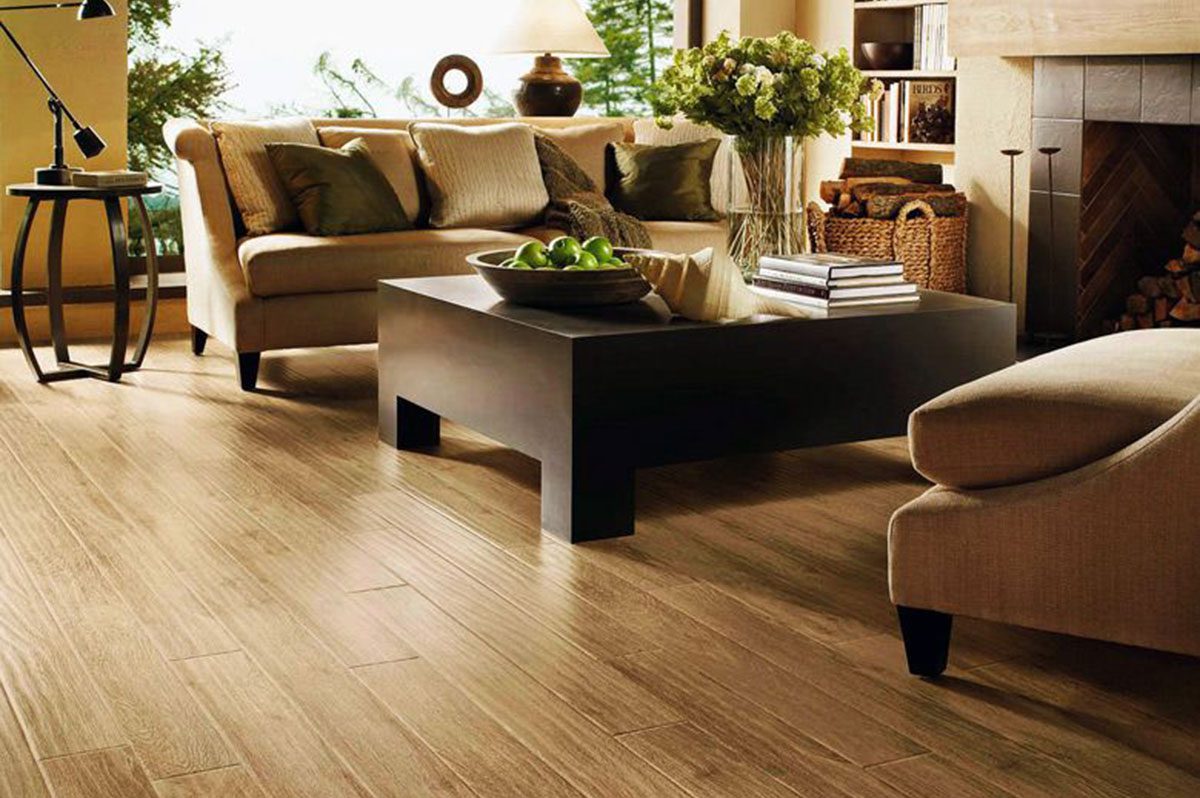What is the difference between bamboo and other types of hardwood? That’s easy—bamboo isn’t wood. Technically bamboo is a type of grass. The reason you’ll find it categorized with hardwood is that it offers the same look and functionality.
Bamboo can be a beautiful choice for your home. But you should note two main differences between wood and bamboo:
- Bamboo is a more sustainable resource. Bamboo grows quite plentifully and rapidly. Where trees can take generations to replace, bamboo can grow as much as 3 feet in one day.
- Bamboo is not as porous as hardwood. What that means for you is that your bamboo floor will not take in liquids or stain as easily, so it can be a great alternative for your kitchen or other areas that may be prone to spills.
The two types of bamboo are natural and carbonized. Natural is just what it sounds like—it gives the appearance of a light wood with no stain. Carbonized bamboo is heat-treated to darken the appearance of the wood and is usually a caramel to medium brown in appearance.
WHY CHOOSE BAMBOO FLOORS—PROS AND CONS
Bamboo is processed and behaves differently than flooring made from wood. If you’re interested in installing bamboo into your home, the best place to start is in understanding the pros and cons of this choice.
Pros
- Bamboo is a renewable resource and therefore considered far more eco-friendly than traditional hardwood. A tree takes generations to grow, while bamboo is plentiful and grows almost overnight.
- Bamboo is water resistant and less porous, so it does not take in a stain from spills as easily as some hardwood choices might.
- Like hardwood, bamboo is easy to maintain and keep clean.
- Obviously, bamboo is a natural material, which is important to many homeowners depending on their taste and the design aesthetic they’ve chosen.
- Bamboo is durable and can be refinished rather than replaced with age.
- Bamboo can be a beautiful choice style wise, and complements many different types of décor.
Negative Points
- Bamboo is softer than many hardwoods, so it will scuff more easily and care should be taken with heeled shoes and movement of furniture.
- The color of the floor is prone to bleaching out in direct sunlight.
- Though bamboo is more porous than hardwood, it is still susceptible to water and mold damage in the case of severe flooding.
- Humidity can cause bamboo to contract and expand, which can cause cracks in the bamboo.
- Bamboo is not graded according to any system, so you have to be careful in selecting a dealer.
- Bamboo is only produced in China and only a few companies there adhere to worker treatment agreements that ensure ethical treatment of employees.
IS BAMBOO HARDWOOD FLOORING THE RIGHT CHOICE FOR YOU?
With many of our customers, the choice really comes down to the look and material you’re happiest with in your home. We can show you what type and look to expect with your installation, and explain all of the pros and cons of this very popular floor choice.
Ready to redesign your floors? Contact us today!









